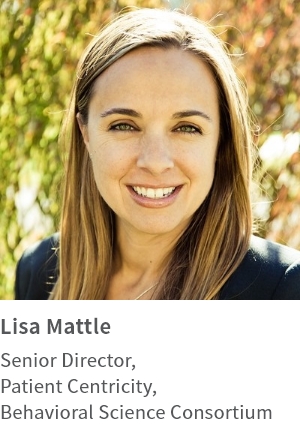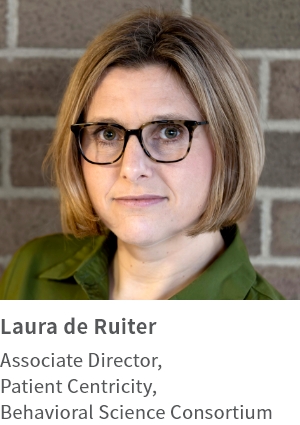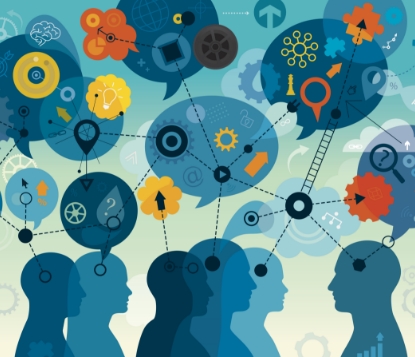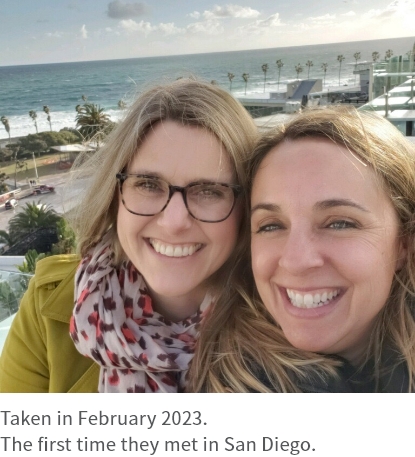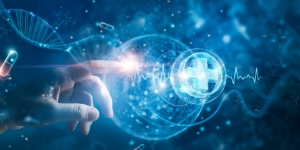Behavioral Insights for Patient Outcomes: In conversation with the Behavioral Science Consortium
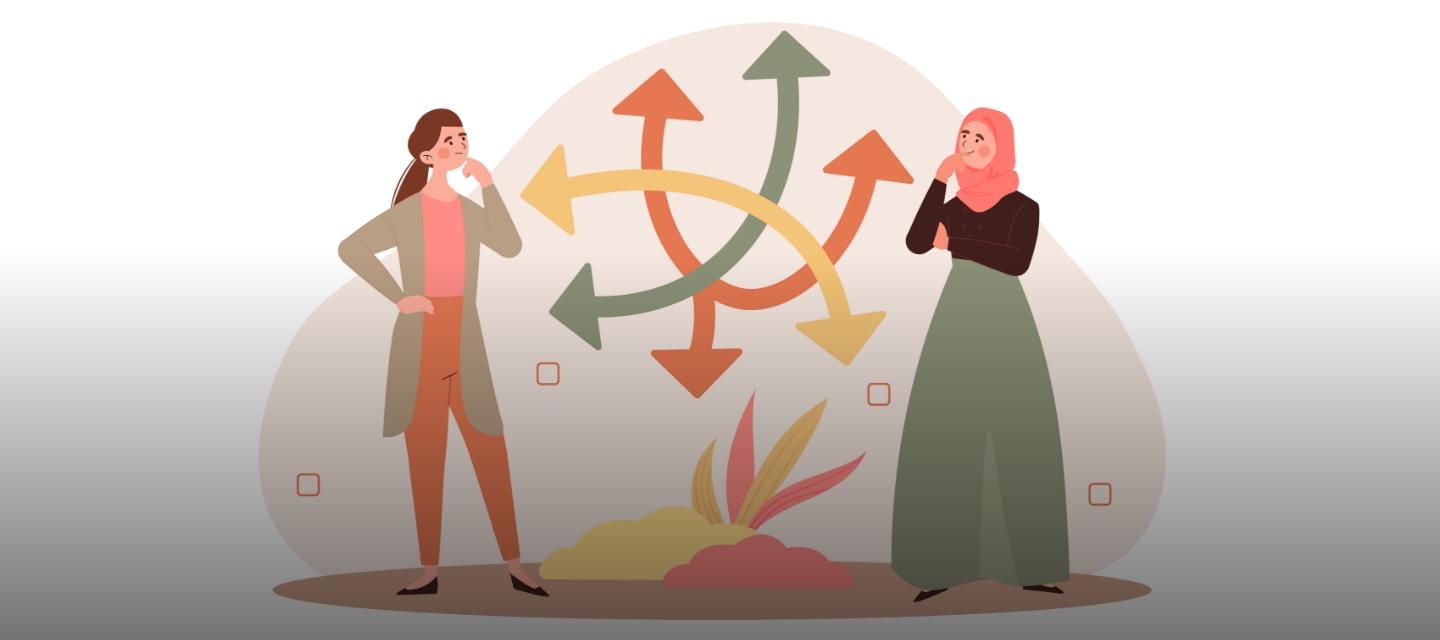
We are making many decisions in our lives, both small and big: from choosing what to eat, where to go on vacation, to deciding which job to take. While we can often provide (seemingly) logical justifications for certain decisions, we sometimes also act automatically, without much thought. We may not be able to articulate why we made a particular choice. In both cases, our decision-making and the actions that follow it are influenced by a host of factors, forming the realm of study known as behavioral science. This field delves into the complexities of human behavior to uncover the patterns and dynamics that shape our choices and actions, and the consequences these have for our lives.
In fact, up to 50% of health outcomes are determined by behavior*. By establishing the Behavioral Science Consortium (BSC), Astellas is recognizing the importance of human behavior for patient outcomes and committing to using behavioral science to improve them. The BSC team brings together a diverse group of global experts from different sub-fields such as psychology, sociology, behavioral economics, or anthropology. This broad expertise allows the BSC to gain profound insights into patients, caregivers, and families. Lisa Mattle and Laura de Ruiter sat down to share their personal journeys into behavioral science and shed light on the BSC's role in driving innovation in healthcare.
*McGovern, L., Miller, G., and Hughes-Cromwick, P. 2014. The Relative Contribution of Multiple Determinants to Health Outcomes. Health Affairs Health Policy Brief, 21.
- Tell us how you first become interested in behavioral science?
- How is behavioral science taking shape within Astellas?
- Could you share some concrete examples of how behavioral science is utilized to enhance the patient outcomes?
- What specific area of work are you directing your efforts toward?
- Can you share your vision for the future progression of the BSC?
1. Tell us how you first became interested in behavioral science?
[Lisa] Like many people, I've been a patient, but I've also been a caregiver. I lost both parents to different diseases and through these experiences, I witnessed first-hand how complex it is to navigate the healthcare system, the difficult emotions due to the circumstances and how challenging it was to make decisions that have such consequences. Through this experience, I developed a deep interest in human behavior and its impact on decision-making, specifically in the healthcare context.
In my mom's case, I remember needing to navigate and translate complex medical information as well as witnessing the diverse approaches to care from doctors, nurses and support staff. Through that lens, I started to understand the complex connections between the environment, relationships and the individual and how these things impact decision-making, outcomes, and experiences for patients, families, and caregivers.
[Laura] My fascination with human behavior comes from a slightly different place; it's related to my upbringing. I was lucky to travel a lot when I was a child, and my parents were keen for me to experience diverse cultures. Over the years, I then also lived in different countries, and this shaped my outlook and made me curious about people's differences and similarities.
This curiosity initially led me to study language acquisition, focusing on how children learn language. This area of study naturally raises questions about our similarities and differences and the factors that shape those, and my interest grew from there to include other aspects of human behavior, and all the factors that influence it.
2. How is behavioral science taking shape within Astellas?
[Lisa] I'd say that it started to take meaningful shape when Anthony Yanni, the Head of Patient Centricity, joined the organization in 2019. Based on his experience as a primary care physician, he introduced his vision to ensure that the patient's voice is incorporated throughout the entire drug development life cycle. And within that vision was the recognition that behavioral drivers and barriers to care were a critical component to understand. (For the details, please read this story.)
The BSC recognizes that there are factors beyond what patients may be aware of, such as unconscious biases which all humans have, how culture impacts how we think and feel about our health, or the impact of relationships on our experience. These factors play a significant role in decision-making and ultimately impact patient outcomes. We recognize that in order to deliver meaningful solutions that align with patients' needs and preferences, we need to go beyond what's scientifically possible. This includes engaging with patients, integrating their perspectives into research and development, and using behavioral science insights to uncover why patients may not be achieving the outcomes they desire.
3. Could you share some concrete examples of how behavioral science is used to improve patient outcomes?
[Lisa] Certainly! One example would be providing insights to support the development of a mental health app for cancer patients living in the Middle East. In some regions, there may not be much support from the healthcare system after diagnosis of cancer. This leaves patients vulnerable and can lead to depression, anxiety, and fear. We are using our behavioral science knowledge to ensure that the app caters to the specific cultural context and preferences of patients in the region. This customization will enhance patient engagement with the app and so improve its overall effectiveness in supporting cancer patients throughout their journey.
[Laura] I'd like to add that in the app project, we can see clearly the relevance of anthropology for pharma. To create an effective solution in this space, it is essential to understand how people in that region think about cancer, health, and various aspects related to illness. This includes understanding their cultural beliefs, attitudes, and potential stigmas associated with cancer and mental health.
And if I could add one more example from last year. November is Gastric Cancer Awareness Month. As Astellas is also working in that space, we ran some internal sessions focused on educating our colleagues about the various aspects of gastric cancer. This included sessions led by our expert faculty, who discussed the cultural variations in patient and caregiver experiences across different regions. If you think about it, gastric cancer has a lot to do with food, meaning that, alongside the devastating physical nature of the disease, it can also destroy the important social contexts of eating and affect family ties. Cultural factors can amplify those effects. So, understanding these differences is crucial for developing targeted solutions for gastric cancer.
4. What specific area of work are you directing your efforts toward?
[Lisa] We focus on educational initiatives and translating knowledge between the academic experts we collaborate with and various stakeholders across different functions within Astellas. We organize lectures that provide a comprehensive introduction to behavioral science in the pharmaceutical industry, featuring academic leaders from around the world with varied sub-specialty expertise. In addition to that, we are witnessing an increasing trend where teams actively reach out to us for a more targeted application of behavioral science in their own work. This has sparked the development of customized seminars, workshops, and many projects to support these teams and apply behavioral science concepts.
We also have experts in adult learning and behavior change on our faculty, and by combining these areas of expertise, we look for ways to support communication and education which may drive learners to embrace new behaviors. Although our focus is primarily internal, these concepts can also be applied to support external education initiatives, that could impact patient outcomes and experience. Would you agree, Laura?
[Laura] Yes, definitely. An intriguing aspect of our work lies in the growing realization across the organization that a mere lack of knowledge is often not the main barrier that keeps people from acting in line with their goals. And this holds true for diverse stakeholders, including patients, healthcare professionals, physicians, caregivers, and others.
From my own experience, I've been involved in multiple projects where we initially assumed that people lacked knowledge, but we discovered that they actually had that knowledge, but there were various reasons or hurdles as to why they couldn't implement or act on it. To take an example that most can relate to, we all know what we should do for good health—proper sleep, exercise, eating balanced diet, etc. The knowledge itself is not lacking. There are other things that are holding us back. This pattern applies to many other areas as well.
This is the reason why we are engaged in not only a meta-education process but also a significant amount of translation. People have generally been very receptive to our education initiatives, but the common question is often, "That's great, but how can I apply it?" Our goal is to provide concrete insights that teams can use rather than merely interesting information.
5. Lastly, can you share your vision for the future of the BSC?
[Lisa] We want to continue to provide more valuable insights that can make a meaningful difference for patients. The insights we provide based on literature and expert input have practical applications for the teams we work with, and we are seeing evidence of their impact. It's a good sign that more teams are reaching out to us with questions, looking to understand how they can best help the patients we serve. We also conduct primary research studies where we talk directly to patients and healthcare professionals, contributing to new scientific knowledge.
[Laura] I personally enjoy seeing how our insights contribute to education by providing tools and perspectives for people. And through our interactions, I hope colleagues can take something away from it and apply it to their future projects.
Read more about Astellas' approach to patient centricity or the internal innovation challenge that sparked the development of the Circle Care app.
Related Links
